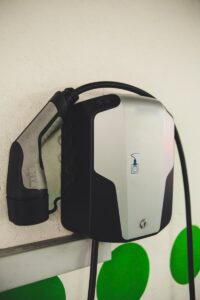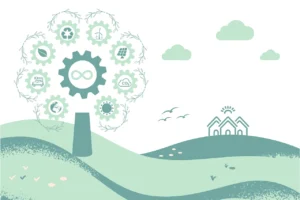Introduction:
Demo music has long been a vital part of the music creation process. A demo (short for “demonstration”) is essentially a rough or preliminary recording that musicians and songwriters create to give a basic idea of a song’s structure, melody, and overall feel. It’s often the first step before polishing a track in a professional studio. Historically, demos were created to pitch songs to record labels or collaborators. However, with the evolution of technology, the process has become much more accessible—and exciting.
Today, the emergence of AI-powered music creation tools has changed how musicians approach demo production, making it easier than ever for independent artists to create high-quality demo tracks from the comfort of their homes.
What Makes Demo Music Special?
At its core, demo music is meant to capture the essence of a song in its rawest form. Artists use demos to experiment with ideas, share their work with collaborators, or gain feedback from peers before going through the costly and time-consuming process of professional production. Demos are usually stripped-down versions, featuring minimal production, basic instrumental tracks, and raw vocals.
But even in its simplicity, a demo has the power to showcase the heart of a song, sometimes giving listeners an authentic glimpse of an artist’s creativity before the polished, final version hits streaming platforms.
The Evolution of Demo Music: From Tapes to AI
Traditionally, demo music was recorded using basic tools like cassette tapes or four-track recorders. Musicians would play their instruments live, often layering vocals and other elements with rudimentary equipment. While the final versions of songs were often recorded in professional studios, demos were more about the initial ideas—imperfect, but brimming with potential.
However, as technology advanced, so did the tools available for demo creation. The rise of home recording software like GarageBand and Ableton Live gave musicians the freedom to produce demos with a higher level of sophistication. But the true revolution in demo music came with the integration of artificial intelligence into the creative process.
AI-Powered Demo Creation: A New Era
In 2024, platforms like Google MusicLM have made it possible for musicians to create professional-quality demos using AI-driven tools. These platforms use advanced machine learning algorithms to generate music based on text descriptions or even a simple melody. Musicians can input a prompt—such as “a relaxed jazz tune” or “upbeat pop with electronic influences”—and the AI generates an instrumental track that fits the description.
One of the most significant benefits of AI-powered demo creation is its ability to help artists experiment quickly with different sounds and genres. The creative process becomes more fluid, allowing musicians to explore new ideas and sounds that they may not have been able to achieve on their own.
How AI Transforms Demo Music Creation:
- Speed and Efficiency: AI tools allow musicians to generate demos in minutes, significantly speeding up the creative process. This gives artists more time to focus on fine-tuning melodies, lyrics, and arrangements.
- Accessibility: With AI-powered platforms, you don’t need expensive studio equipment or extensive production knowledge to create a great-sounding demo. Independent musicians can now produce professional-grade demos with just a laptop and an internet connection.
- Creative Exploration: Musicians can experiment with various musical styles and instrumentations, allowing them to push their creative boundaries and produce unique sounds that they might not have thought of without AI assistance.
By breaking down traditional barriers, AI democratizes the music production process, making it possible for artists at any level to craft demos that rival professional studio productions.
Impact on Independent Artists
For independent artists, the rise of AI in demo creation is nothing short of a game-changer. In the past, many indie musicians faced obstacles in producing demos due to the cost of studio time and equipment. Now, with AI tools, musicians can create demos on their own terms—without needing a full band or producer.
Platforms like SoundCloud and Bandcamp have made it easier for artists to share their demos with a global audience. With AI-generated music, artists can now upload polished demo tracks that rival commercially produced music, giving them a competitive edge when trying to gain listeners or impress industry professionals.
Additionally, the ease and affordability of demo creation have allowed more musicians to enter the market, giving rise to a diverse array of sounds and genres. This democratization of music production is helping to level the playing field, giving indie musicians the tools to showcase their talents in ways that were once reserved for artists signed to major labels.
Advantages for Indie Musicians:
- Cost-Effective: AI-powered demo creation tools eliminate the need for expensive studio sessions, allowing indie musicians to allocate resources elsewhere, such as marketing or touring.
- Creative Freedom: Without the pressure of high studio costs, musicians can take their time to refine their demos and experiment with different styles, arrangements, and instrumentation.
- Rapid Iteration: Artists can quickly create and share multiple versions of a song with collaborators or fans, fine-tuning their music before committing to a final production.
A Glimpse into the Future of Demo Music
As AI technology continues to evolve, the possibilities for demo creation are limitless. We’re already seeing AI tools that can generate entire songs, complete with vocals, harmonies, and backing tracks. In the future, musicians may be able to create highly customized demo tracks simply by describing their vision to an AI assistant, freeing them up to focus more on storytelling, performance, and other artistic elements.
Moreover, the line between demo and final production may continue to blur, as the quality of AI-generated demos approaches that of professional studio recordings. This could mean that future demos will serve as fully polished representations of an artist’s vision, ready to be released directly to the public.
Conclusion
Demo music has always been an essential part of the songwriting and production process, offering musicians a way to capture the raw essence of a song. But with the rise of AI-powered tools, the art of demo creation is evolving in unprecedented ways. Musicians now have the ability to produce high-quality demos with greater ease, affordability, and creative freedom.
Whether you’re an independent artist looking to break into the industry or an established musician exploring new ideas, AI-powered demo creation is opening doors to a new era of music production. As the technology continues to improve, it’s clear that the future of demo music will be as exciting as the songs themselves—allowing artists to push creative boundaries and redefine the music-making process for years to come.




